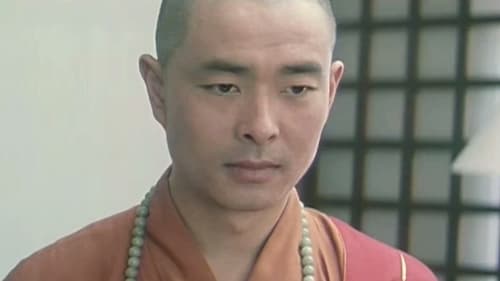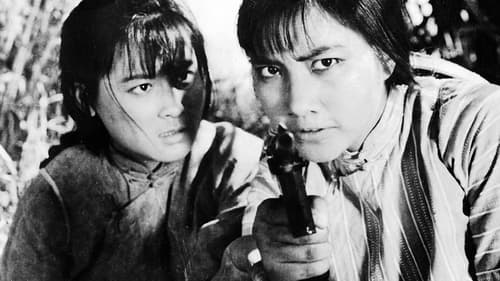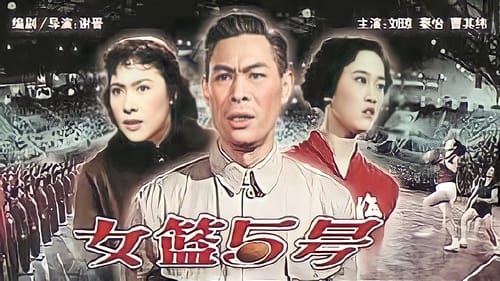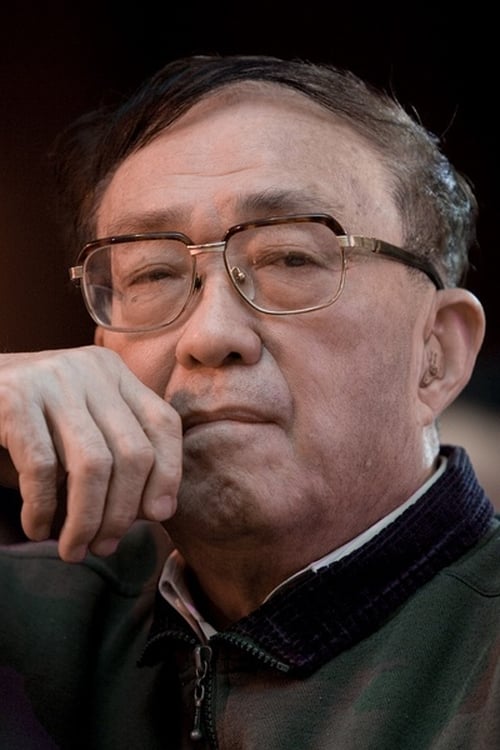Xie Jin
Nacimiento : 1923-11-23, Zhejiang, China
Muerte : 2008-10-18
Historia
Xie Jin (Chinese: 謝晉; pinyin: Xiè Jìn; 21 November 1923 – 18 October 2008) was a Chinese film director. He rose to prominence in 1957, directing the film Woman Basketball Player No. 5, and is considered one of the Third Generation directors of China. Most recently he was known for the direction of The Opium War.
Xie was a popular director amongst the older generations of Chinese, with six of his films being voted Best Picture in the Hundred Flowers Awards. He was the only Chinese director to date to be a member of both the Academy of Motion Picture Arts and Sciences as well as the Directors Guild of America.

Himself
This highly personal film essay demonstrates that Chinese cinema has dealt with questions of gender and sexuality more frankly and provocatively than any other national cinema. Yang ± Yin examines male bonding and phallic imagery in the swordplay and kung fu movies of the '60s and '70s; homosexuality; same-sex bonding and physical intimacy; the continuing emphasis on women's grievances in melodramas; and the phenomenon of Yam Kim-Fai, a Hong Kong actress who spent her life portraying men on and off the screen.

Director
Superproducción sobre el proceso de conquista y colonización de Hong Kong por los británicos. La historia comienza cuando el emperador ordena en 1839 combatir el tráfico de opio provocando con este gesto la ira de los comerciantes de Reino Unido.

Director
This is a story about seven female prisoners each with different backgrounds, living within the one prison. At the beginning of the story, a new inmate Ding Qing Er arrives with tears streaming down her face, but told that it's too late to cry. The story continues to slowly reveal the lives of the female prisoners, and each of their struggles to have ended up where they are today. There's the mother who's husband keeps giving false promises of taking her and her child to America; the prostitute who was raped; the lesbian who was given up and betrayed by the Red Army; among others, and there's also Qing Er, who is in jail for theft after stealing costly medicine from the hospital for her dying husband. Through the lead of each other and also the kind hearted guards, they learn to form an unbreakable bond, and a way of dignity.

Director
An Old Man and His Dog is a 1993 Chinese film directed by Xie Jin.

Director
A man must take care of his terminally ill son.

Director
In 1945, Japan is defeated in its war of aggression against China. During a panic retreat, a baby boy is abandoned, but is adopted and grows up to become and eminent monk. Thirty years later, he visits China and meets his real mother who is now elderly and weak.

Director
In 1948, four young girls, daughters of Shanghai's elite, attending college in America find themselves unable to return after the Communists take Shanghai.

Writer
Based on a novel by the same name written by Gu Hua, a melodrama about the life and travails of a young woman who lives through the turmoil of the Cultural Revolution.

Director
Based on a novel by the same name written by Gu Hua, a melodrama about the life and travails of a young woman who lives through the turmoil of the Cultural Revolution.

Director
Wreaths at the Foot of the Mountain is a 1984 Chinese film about the life of the soldiers in a PLA army company before, during and after the Sino-Vietnamese War.

Himself
History of filmmaking in China from its beginnings in the 1920s to 1982, featuring Shanghai cinema of 1930s; the progressive filmmakers; the organisation of filmmaking under the post-war communist government; the impact of the Cultural Revolution; the work of Xie Jin.

Writer
Biopic of Qiu Jin (1877-1907), early Chinese feminist and martyred revolutionary.

Director
Biopic of Qiu Jin (1877-1907), early Chinese feminist and martyred revolutionary.

Director
This movie is adapted from the novel Heroes in Tongbai. Xiao Hua, a sister of Zhao Yongsheng, is deserted by her poor family. He Xiangdong, a woodworker, adopts her and rename her He Cuigu. To steer clear of arrest by the enemy, Dong Hongguo, offspring of a revolutionary family, is renamed Xiao Hua so as to be adopted by her adopter. Later, Zhao Yongsheng's parents are killed by the enemy.

Director
When Song Wei's fiancee Luo Qun is denounced as a right-wing traitor by Party official Wu Yao, he is sentenced to ten years' hard labor. Song Wei breaks off her engagement, and eventually marries Wu Yao. Years later, after the Cultural Revolution, political currents have shifted; Song Wei demands that her husband, now a powerful Party official, seek Luo Qun's rehabilitation, but Wu Yao has no desire to open up old political and emotional wounds.

Director
In the early period of China's War of Liberation the Yan'an Nursey which housed the children of the revolutionary fighters had to be evacuated. Li Nan, an army instructor, guides the group of children to the liberated area in the Taihang Mountains and their parents. Made to mark International Children's Year.

Director
After her senses are surgically restored, a formerly deaf mute teenager enlists in the army and is assigned to communications work. But her inexperience with even such simple tasks as answering a telephone lead her supervisor to conclude she is incompetent, and try to have her reassigned. However, a courageous action by another soldier leads him to reevaluate his judgment.

Director

Director
During the Cultural Revolution, the director of a farm collective studies medicine on her own in order to provide a more effective alternative to the collective's "capitalist" health care clinic, then investigates and exposes a sinister plot by the clinic's staff.

Director
Adaptation of a lesser known to Western world, yet wildly popular Peking Opera developed during the Cultural Revolution under the leadership of Jiang Qing.

Writer
In pre-revolutionary China, two young girls, Chunhua and Yuehong Xing, rise through the ranks of Chinese opera, but with their artistic success comes a new series of personal and social challenges. After they're sold to a Shanghai opera and the revolution dawns, Yuehong radicalizes and devotes her career to politically progressive performances, while Chunhua flees to avoid turmoil. As the world changes around them, they fight to maintain their friendship.

Director
In pre-revolutionary China, two young girls, Chunhua and Yuehong Xing, rise through the ranks of Chinese opera, but with their artistic success comes a new series of personal and social challenges. After they're sold to a Shanghai opera and the revolution dawns, Yuehong radicalizes and devotes her career to politically progressive performances, while Chunhua flees to avoid turmoil. As the world changes around them, they fight to maintain their friendship.

Screenplay
Sports gain acceptance among workers at a meat processing plant.

Director
Sports gain acceptance among workers at a meat processing plant.

Director
Qiong Hua is a slave girl of Nan Batian, a big landlord in Yelinzhai Village on Hainan Island. She has tried many times but cannot escape from the landlord's cruel oppression. Later, Nan Batian jails her in a water dungeon. Hong Changqing is the Party representative of a red detachment of women. He disguises himself as a wealthy businessman residing abroad and comes to her rescue. He pretends to buy Qiong Hua to be his slave, saves her from the abyss of sufferings, and instructs her to join the red detachment of women. At the outset, Qiong Hua joins the revolutionary rank to settle her personal grudge. Educated by Hong Changqing, she becomes a conscientious revolutionary fighter.

Director
The film introduces the famous national model worker, textile worker Huang Baomei, who is played by the real Huang Baomei herself.

Director

Director

Writer
Tian Zhenhua arrives in Shanghai to coach a local women's basketball team. Number 5 on the team, Xiaoje, excels at basketball but is unsure of whether to continue playing. As Tian gets to grips with training Xiaoje and the rest of the team, he reflects on his career as a star basketball player before the revolution.

Director
Tian Zhenhua arrives in Shanghai to coach a local women's basketball team. Number 5 on the team, Xiaoje, excels at basketball but is unsure of whether to continue playing. As Tian gets to grips with training Xiaoje and the rest of the team, he reflects on his career as a star basketball player before the revolution.

Director

Director
The clan law of the Yang family works against the relationships of a widow and her daughter until a new marriage law is enacted after liberation.

Director

Director

Director

Director

Director














